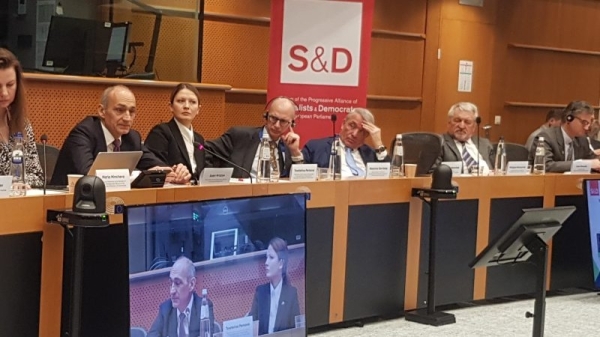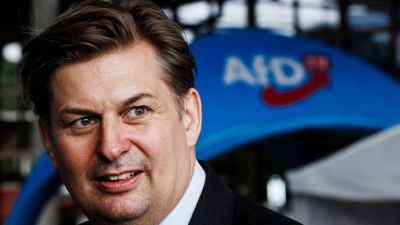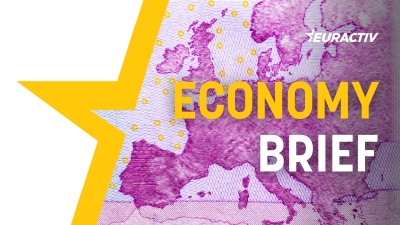Bulgaria’s lead battery potential highlighted at Brussels conference

Lead-producing Bulgaria has the potential to be a major battery supplier and harness the economic opportunities of the green transition, but current EU policies prioritise lithium-ion batteries, participants heard at a conference in Brussels on Tuesday (19 March).
The conference “The role of Bulgaria in EU energy security”, held in the European Parliament at the initiative of MEP Tsvetelina Penkova (S&D), gathered representatives of the Bulgarian industry and its energy sector, as well as representatives of European industries and EU institutions.
The Commission has identified energy storage solutions like batteries as crucial for Europe’s energy transition. Storage is needed to help manage the supply of wind and solar energy, which varies through the day. Batteries are a core component of electric vehicles.
The central role foreseen for batteries means that their production also represents an important economic opportunity. Several European countries are seeking to attract electric vehicle battery ‘gigafactories’ to their territories. Batteries are also a focus of EU efforts to develop a green industrial strategy.
Asen Hristov, chairman of the board of Eurohold Bulgaria, singled out in his keynote speech what he said was a “loophole” in EU policies, namely the neglect of the potential of lead batteries.
Different materials can be used to create batteries and the choice of material will impact the battery’s characteristics, for example, its cost, storage capacity, and lifespan. This in turn can influence how different battery types can best be used.
Hristov’s argument was developed further by Rumen Tsonev, CEO of the Holding of non-ferrous metals KCM 2000, who said his company produces 14% of the EU’s copper, 8% of lead and 4% of zinc.
“The EU pays little if no attention to the best way to accumulate energy, namely the lead-acid batteries. Conversely, the EU finances projects for batteries which hardly contain any metal produced in the EU, namely the lithium-ion batteries,” Tsonev said.
He argued that lead-acid batteries were “the best, as 100% of the metal they contain is recyclable.
The sustainability of batteries is a key European concern. New battery production rules were agreed last summer.
Tsonev further lamented that EU programmes underway in the energy sector in Bulgaria were designed in a way to include by default technology based on lithium-ion batteries.
“If these programmes included at least one sentence saying that the batteries should be recyclable, that would put lead-acid batteries on a fair footing,” he said.
Ivan Mitev, CEO of the Bulgarian Mining and Geological Chamber, said that besides Bulgaria’s potential for being a big producer of copper, lead and zinc in the EU, the country could also produce from eight to 10 of the critical raw materials, as defined in the EU list of Critical Raw Materials.
Petar Iliev from the Sofia University of Chemical Technology and Metallurgy highlighted Bulgaria’s potential in terms of trained experts but recognised that regarding critical raw materials, the country lacked technologies and needed European financing.
Nuclear energy was another topic of the conference. Bulgaria has two functioning Soviet-built reactors at the Kozlodui nuclear power plant and plans to build two other reactors with Western technology.

Bulgarian nuclear experts question economic viability of new nuclear project
Bulgarian nuclear experts are questioning the economic feasibility of the country’s plan to build two US nuclear reactors at the Kozloduy nuclear power plant, raising questions on funding and whether the country has the means to purchase energy from these plants.
Yves Desbazeille, director general of Nuclear Europe, argued that despite rhetoric from other energy lobbies, nuclear energy was still competitive, also in terms of cost. He criticised EU policies that led to imports of 90% of solar panels from China. “I don’t see the sovereignty there,” he said.
Read more with Euractiv




